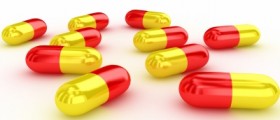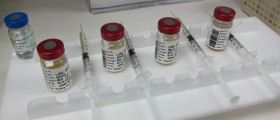
The problem with most drugs is that, even though they solve the problem they are used for, they can sometimes, in some people, cause an allergic reaction, just like some foods do. This goes for both prescription drugs and over-the-counter ones. Typically, the reaction is characterized by skin manifestations, such as rash or hives, but sometimes the reaction can be systemic and very serious.
Not every reaction to a drug is an allergic one. Drugs produce different effects, some are non-allergic and those are usually classified as adverse or side effects, and others are allergic, and they involve the immune system. In any case, any unwanted reaction to a drug can be potentially life-threatening and requires medical evaluation.
Drug allergies are possible even with medications that, when used in past, caused no adverse effects at all.
Generally, drug allergies go away as soon as a person stops taking the drug and its components leave the body through urination. This, however, does not mean that it is not advised to see a doctor. Some allergic reactions to drugs can be dangerous.
Signs and symptoms of drug allergy
In most cases, the allergic reaction starts immediately or soon after taking the drug. However, sometimes it happens that a person starts experiencing signs of allergy after several days or weeks of taking the drug. Topical medications usually take longer to produce a reaction than oral ones.
The common symptoms of drug allergy include skin rash, hives or urticaria, redness, itching, fever, swelling of the face, tongue and lips and difficulty breathing. Confusion, dizziness, shock or seizure are considered severe reactions.
Anaphylaxis is the most severe form of drug allergy and it is a potentially fatal condition. It is rare but when it occurs it is essential to seek immediate medical attention, preferably in an emergency room, because if medical assistance is not provided on time, the outcome can be fatal.
Signs of anaphylaxis involve difficulty breathing due to constriction of the airways and throat, severe drop in blood pressure, leading to shock, cyanosis, pulse that is weak but rapid, nausea, vomiting, diarrhea, dizziness, lightheadedness and fainting.
Testing for drug allergies
The best way to prevent potentially dangerous drug allergies is to get tested and find out which drugs cause adverse reactions, especially if allergy was suspected after taking a specific drug. Allergy skin test can be done for many drugs, including antibiotics, and it is a very effective way to determine whether a person has an actual drug allergy. This can be done in specialized allergy centers.
Another option is drug provocation testing, in which the dosage is gradually increased. This option is mainly used when alternative drugs do not work or are not suitable for some reason.

















Your thoughts on this
Loading...